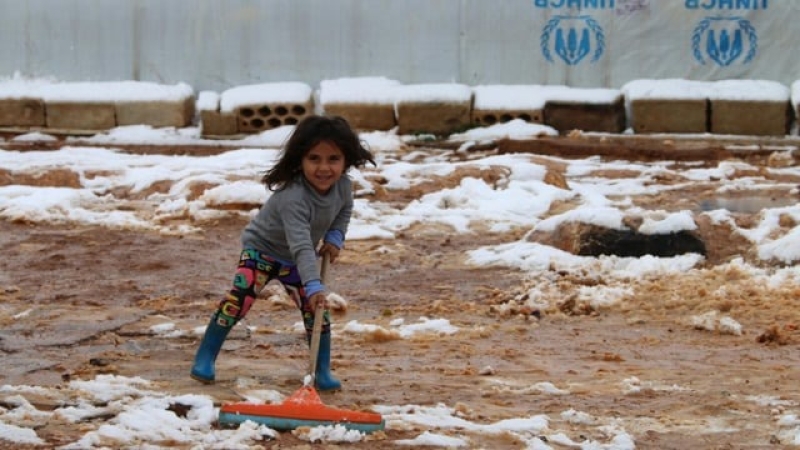- Another July warrier shot in head, critical in Khulna hospital |
- NCP Khulna Chief Critically Shot Amid Rising Political Violence |
- Indian MP Warns Bangladesh Faces Rising Lawlessness |
- Law and Order Must Be Ensured Ahead of Polls: Prof Yunus |
- Tough times ahead, everyone must remain united: Tarique Rahman |
UN Warns Millions of Refugees Face Harsh Winter Ahead

The United Nations warned Tuesday that millions of refugees and displaced people face a harsh winter, with far less humanitarian aid available as the coldest months arrive in the northern hemisphere.
UNHCR, the UN refugee agency, has seen its funding from governments slashed and is now trying to raise at least $35 million in public donations to support Syrian, Afghan, and Ukrainian refugees through the season.
"Families will have to endure freezing temperatures without basic necessities many of us take for granted: proper roofs, insulation, heating, blankets, warm clothes, or medicine," said UNHCR’s external relations chief Dominique Hyde.
The United States, traditionally the world’s top donor, has sharply reduced foreign aid, previously accounting for over 40 percent of UNHCR’s budget. Other major donor countries have also cut funding, leaving the agency struggling financially.
"Humanitarian budgets are stretched to breaking point, and winter support will be much lower this year," Hyde warned. "We need more funding to help make lives slightly more tolerable."
UNHCR said private donors are now critical to saving lives. The agency aims to raise at least $35 million to repair war-damaged homes, insulate houses, provide warmth and blankets to children and the elderly, and supply medicines and hot meals.
Millions on the Move
Returning refugees are also at risk. More than a million Syrian refugees have returned since the overthrow of President Bashar al-Assad’s regime last December, often finding their homes destroyed after 14 years of civil war.
"The most vulnerable families face the cold with nothing to shield them; funding cuts risk leaving 750,000 people without vital support this winter," UNHCR said.
Over 2.2 million Afghans have returned from Pakistan and Iran this year, many arriving empty-handed, with few prospects in a crisis-ridden country. Recent earthquakes have worsened their situation.
In Ukraine, temperatures could drop to minus 20°C as civilians face a fourth winter amid full-scale war following Russia’s 2022 invasion. "Humanitarian needs continue to grow as ongoing attacks destroy infrastructure and disrupt gas, electricity, and water," UNHCR said.
Despite the challenges, Hyde said, "Our teams are on the ground, determined to protect refugees from the cold — but we are running out of time and resources."

